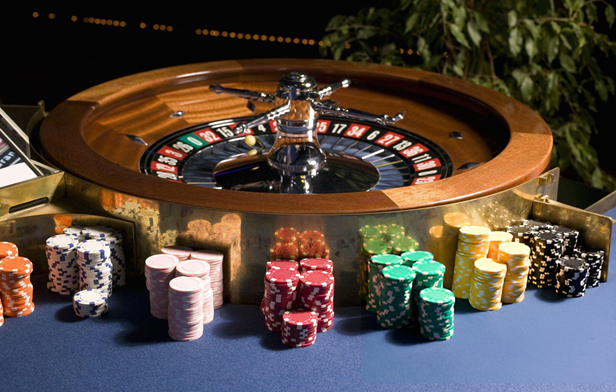Roulette has an interesting origin; the original game was first conceived in the 17th century and has since gone through several changes. This resulted in many variations of the game, some of which have become a staple in casinos around the globe. With the birth of online casinos, the game was transformed once again for online play and remains one of the most played online games to this day.
Casino games have always fascinated mathematicians, and roulette is no different from them. There have been several attempts to crack the game, some successful, while others not so much. That said, there have been a few geniuses in history who have managed to beat roulette odds with the help of science.
Albert Roach Hibbs and Roy Walford Beat Roulette in 1940s
Casinos attract everyone who is fascinated by numbers and flashy rewards, even though the house always wins, there are instances where it has been outsmarted. One such example is of Albert Roach Hibbs and his friend Roy Walford, both students at the University of Chicago in the late 1940s, who famously beat casinos in Nevada with their mathematical skills.
However, this wasn’t achieved overnight, the two friends spent days studying the roulette wheel and how it functions before they came up with predictive models that helped them bet more confidently. Their efforts were successful, and they went on to make profits estimated at around $42,000, which they used to buy a yacht and sail around the Caribbean.
Hibbs would later obtain his master’s degree in mathematics and work for NASA, where he contributed significantly to several projects. Most notably, as a systems designer for Explorer 1, the first satellite launched by the United States. Walford also had an illustrious career, he is credited for advancing aging research and was a crew member of Biosphere 2.
Edward Thorp and Claude Shannon Make a Computer Predict Roulette Results
After the success of Hibbs and Roy, casinos began upgrading their equipment to avoid it being exploited again. The two were very vocal about their casino research, and it served as study material for strategies that were developed after them. They inspired Edward Thorp, a student at UCLA who, in the late 1950s, created a computer in collaboration with mathematician Claude Shannon to beat new roulette wheels.
They never made big profits as they were mixing their bets with random choices to avoid suspicion. However, the model they created was consistent in predicting outcomes at American Roulette. Their knowledge of mathematics and the science of gambling was published in several articles and books, resulting in the creation of more strategies by future geniuses.
Richard Jarecki Cracks Roulette Wheels in the 1960s
Between 1964 and 1969, Richard Wilhelm Jarecki, a medical professor at the University of Heidelberg, won close to $8 million in today’s money from various European casinos. While European Roulette is different from the American variant, the methods applied by Jarecki were somewhat similar to the big winners that came before him.
He studied the game day and night and even hired people to track the game data for him. After observing the game and studying the science behind it, he developed his own methods that saw him make a fortune. At the time, European casinos were less strict than their American counterparts, which allowed Jarecki to freely study the games to his heart’s content. Thus, he became another legend in the rich history of roulette winners who mastered the art of gambling.
How Do Old Methods Compare to Modern Strategies?
Strategies for real money roulette have changed over time, but the core mathematics behind them remain the same. Old models have been adopted into new strategies and adjusted to match the modern functions of the game. Fibonacci, D’Alembert, Martingale, and Paroli Strategy are some of the most popular strategies used in modern times to maximize winning chances in roulette. Remember, the goal here is to win more frequently rather than chasing rewards at every bet.
The new strategies are an evolution of old methods and are tailored for modern times; while they don’t guarantee wins, they do save you from losing over time. In every game of chance, there is a pattern that is never apparent to average players, but established strategies help you make informed decisions. Moreover, you can use flashcards to memorize numbers and numerical patterns to make things more practical for you.
Today most casino games are played online as they are not only more accessible than their physical counterparts but also more welcoming of players with various skill levels. Roulette and its variants are among these games. Also, its huge presence in popular culture is another reason for the game’s massive popularity among young players.
Stay Connected With: celebriches

Jennifer David is the creative force behind CelebRiches, your go-to source for celebrity financial exploits. With an unwavering passion for the entertainment industry, she delivers in-depth insights into celebrities’ net worth, combining thorough research with a captivating narrative. Explore the stars’ fiscal journeys through Jennifer’s expert lens, where finance meets fame most engagingly.
